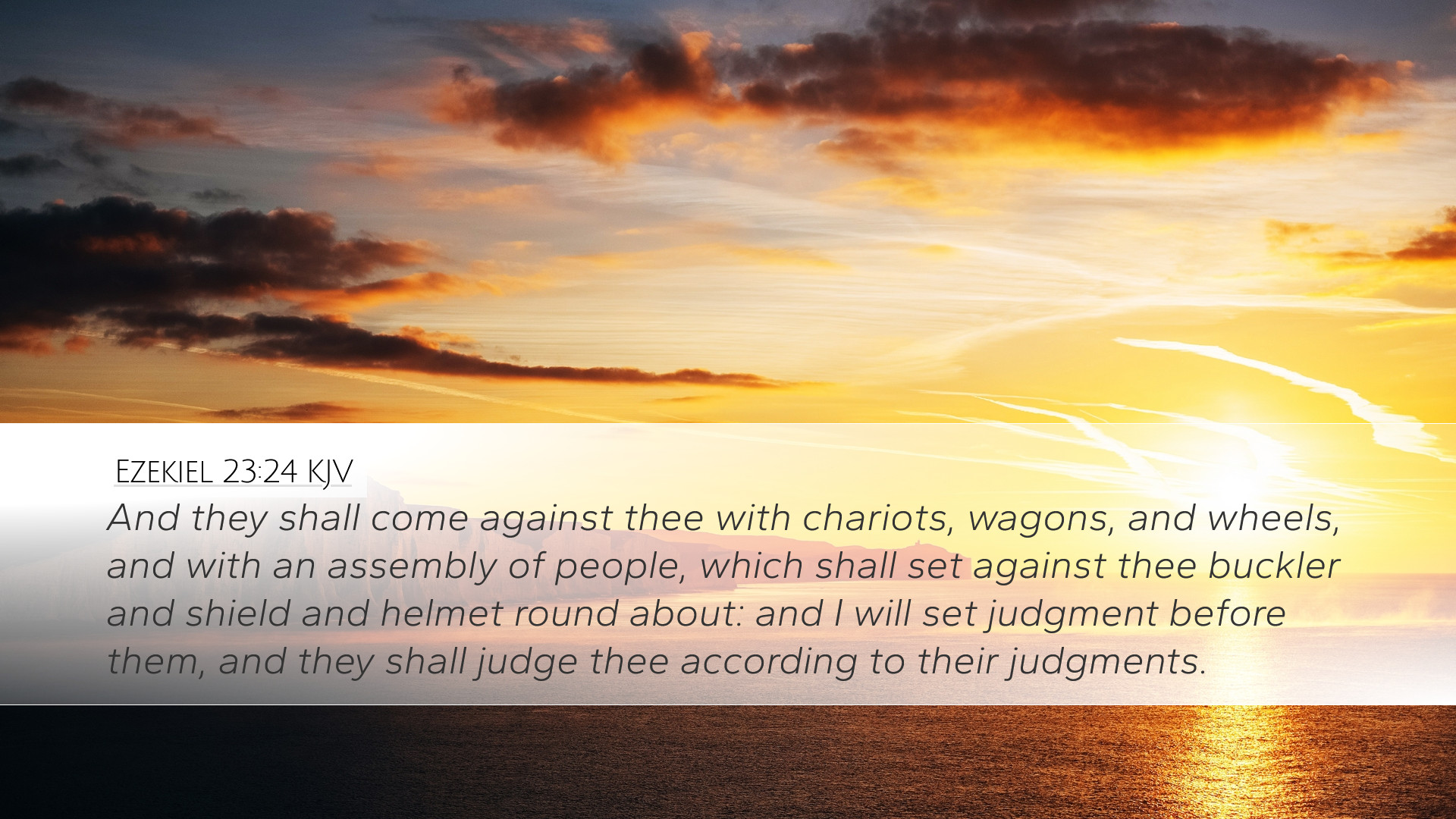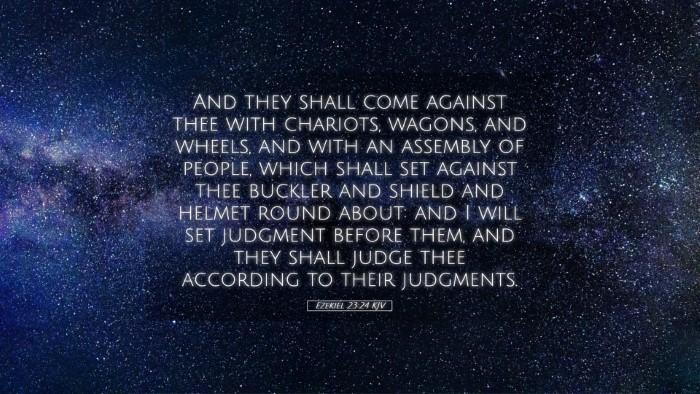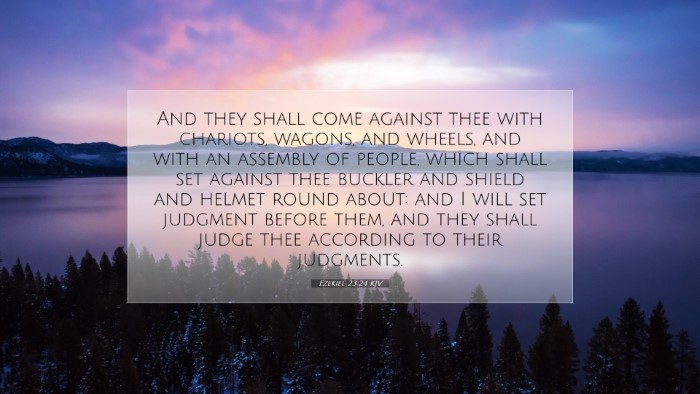Ezekiel 23:24 - Commentary and Insights
Bible Verse: Ezekiel 23:24 - "And they shall come against thee with chariots, wagons, and wheels, and with an assembly of people, which shall set against thee buckler and shield, and helmet round about: and I will set judgment before them, and they shall judge thee according to their judgments."
Introduction
The prophetic book of Ezekiel contains vivid imagery and powerful messages regarding God's judgment, especially directed towards Israel and its neighboring nations. In Ezekiel 23:24, the prophet illustrates the impending judgment through the metaphor of an army coming against a city. This commentary aims to analyze the verse by drawing insights from significant public domain scholars, including Matthew Henry, Albert Barnes, and Adam Clarke, to discover its theological implications for past and contemporary believers.
Contextual Background
In the preceding chapters, Ezekiel uses allegorical language to describe the unfaithfulness of Israel and Judah, personified as two sisters, Oholah and Oholibah. This metaphor depicts their spiritual adultery and betrayal to God through idolatry and alliances with foreign nations. The verse in focus continues this theme, revealing what judgment will come as a result of such infidelity.
Insights from Commentators
Matthew Henry’s Perspective
Matthew Henry highlights the fierce judgment that comes upon the unfaithful, emphasizing that the description of military might underscores the severity of God's retribution. He notes that the “chariots, wagons, and wheels” signify the overwhelming forces that will be unleashed upon Jerusalem, pointing to both literal armies and God's sovereign decisions. Henry posits that this imagery serves not only to intimidate but also to remind the people of the consequences of their transgressions against the Lord.
Albert Barnes’ Commentary
Albert Barnes elaborates on the specificity of the different military components listed in the verse. He explains that the phrase “an assembly of people” indicates a diverse coalition of forces united against Jerusalem. Barnes accentuates the idea that God allows these judgments to manifest through earthly means, reflecting His overarching control over nations and events. Furthermore, he points to the phrase “I will set judgment before them,” suggesting a divine tribunal where the actions of the wayward will be meticulously evaluated and punished according to their deeds.
Adam Clarke’s Interpretation
Adam Clarke provides a nuanced examination of the prophetic nature of this verse. He interprets the “chariots and wheels” as conveying swiftness and readiness of attack, indicative of an inescapable judgment. Clarke emphasizes the importance of understanding this passage within the broader narrative of God's justice. The verse's culmination—“they shall judge thee according to their judgments”—illustrates that those who had collaborated with foreign entities (represented by those armies) will ultimately be instruments of God's just wrath, fulfilling the cyclical nature of divine justice.
Theological Implications
This verse encapsulates the themes of divine judgment, accountability, and the sovereignty of God over nations. For pastors, students, theologians, and Bible scholars, several key theological implications can be drawn:
- God’s Sovereignty: The imagery of divine judgment being executed through foreign armies emphasizes that God is in control of all events, including those that seem chaotic and hostile.
- Call to Repentance: This passage serves as a stark reminder of the need for repentance and the dangers of spiritual waywardness. For modern readers, this illustrates that idolatry can take many forms, urging congregations to maintain purity in worship.
- Judgment and Accountability: The careful examination of actions before judgment reflects the necessity of accountability in the life of believers, encouraging self-examination and moral integrity.
- Hope Amidst Judgment: While judgment is a prominent theme, scholars also note that it can lead to restoration—a cycle seen throughout the prophetic literature. Understanding judgment in the context of God’s ultimate redemptive plan is essential.
Conclusion
Ezekiel 23:24 is a potent reminder of the consequences of unfaithfulness and the certitude of divine judgment. Drawing upon the insights of respected commentators like Matthew Henry, Albert Barnes, and Adam Clarke deepens our understanding of the text and its implications for personal and communal faith practices. As leaders and scholars reflect on this verse, it encourages a call to vigilance, repentance, and hope in the sovereign God who reigns over both judgment and mercy.


